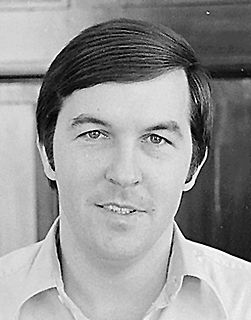A Quote by Ambrose Bierce
LOSS, n. Privation of that which we had, or had not. Thus, in the latter sense, it is said of a defeated candidate that he "lost his election".
Related Quotes
Various accounts of Empedocle's death are given in ancient sources. His enemies said that his desire to be thought a god led him to throw himself into the crater of Mount Etna so that he might vanish from the world completely and thus lead men to believe he had achieved apotheosis. Unfortunately the volcano defeated his design by throwing out one of the philosopher's sandals.
But all three of them had had to lose things in order to gain other things. Will had lost his shell and his cool and his distance, and he felt scared and vulnerable, but he got to be with Rachel; and Fiona had lost a big chunk of Marcus, and she got to stay away from the casualty ward; and Marcus had lost himself, and got to walk home from school with his shoes on.
In 2006 it was a horrible election year, and, you know, I lost. But I lost because I continued to be a constant conservative, and the last six years I was someone who was a national figure in the sense that I was the third ranking Republican in leadership and I had just run President Bush's campaign in Pennsylvania.
At the time when I was in college, Oscar Grant had just lost his life in Oakland, Calif. He was an unarmed young black male who had a record. And at the time when his death was making headlines, more people were talking about what he had done in his past than the fact that he unjustly lost his life.
Said an opponent to me after my last protest was sent in, what party would you vote for, if you could? Neither. I would have a moral sentiment party. I would know the private character of my candidate, would know also whether he takes care of his own property - whether he had failed in business - if so, whether he had paid back every dollar of debt as fast as he had earned them. Yes, every candidate should be examined morally, and if it be found that he has not been true to the monitions of conscience in one direction, he cannot or will not be in another.

































